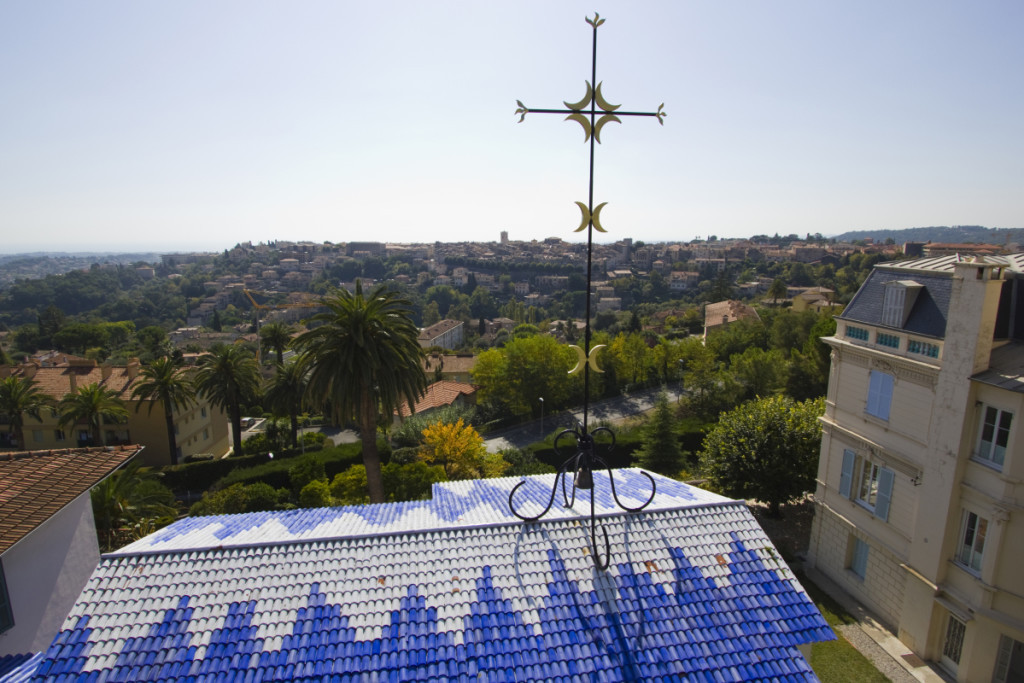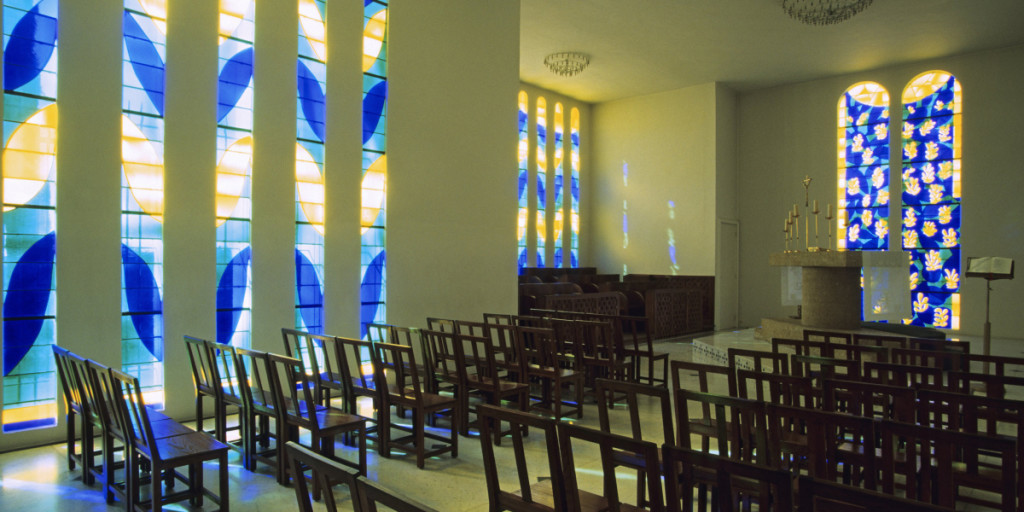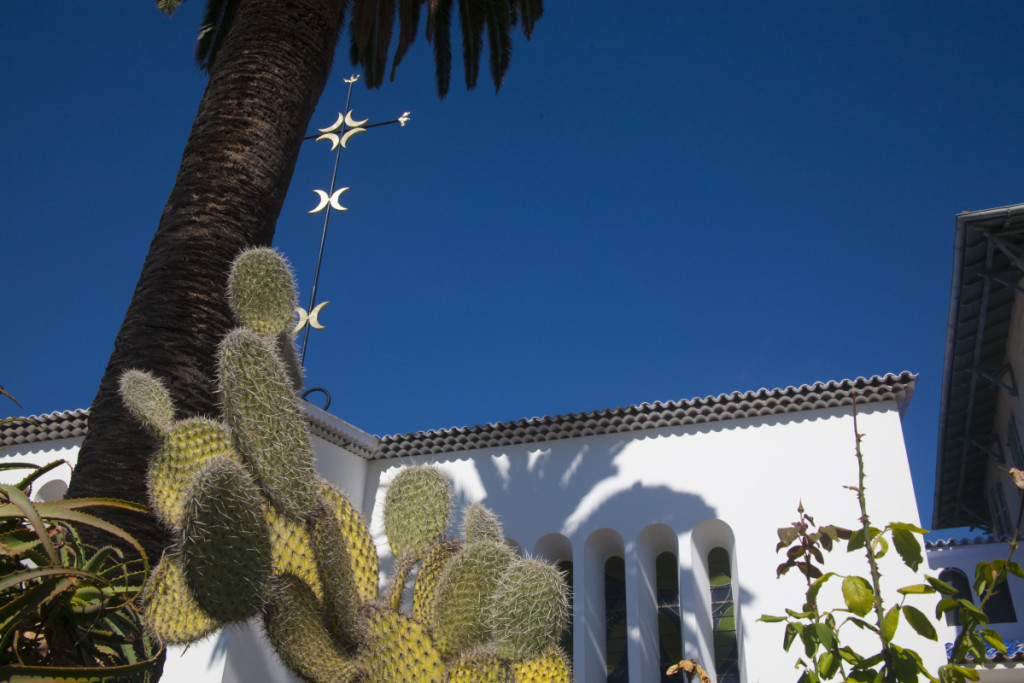The great artist drew up the plans for every detail of this chapel located in the French Riviera, from the stained glass windows to the receptacles for holy water.
Lenten Campaign 2025
This content is free of charge, as are all our articles.
Support us with a donation that is tax-deductible and enable us to continue to reach millions of readers.
In Vence, France, the Dominicans of the Most Holy Rosary pray in the middle of a work of art. Their chapel was designed by Henri Matisse, who considered it his masterpiece, the culmination of all his active life. The painter was not a practicing Catholic, but while suffering from an illness he was taken care of by a young nurse, who then entered the Dominicans. Impressed by the vocation of his nurse, who became Sister Jacques Marie, he proposed to the Dominicans to build their chapel from A to Z … from the walls to the furniture and liturgical vestments! There’s nothing like it in the history of art.
Four years of work
While designing the chapel, the artist relied on religious advisors: Brother Rayssiguier and Father Couturier. He also benefited from the know-how of his friend, the architect Auguste Perret. For four years, from 1948 to 1951, he drew up the plans for the building and all the details of its decoration. It is the culmination of his quest for conciseness and sobriety. From the outside, the only thing you would notice about the church is its white and blue tiled roof and its 13-meter-high wrought iron cross, bearing crescent moons and gilded flames. But once you cross the threshold, a feeling of spaciousness and serenity envelops you.

Stained glass windows that illuminate
Matisse thought carefully about the variations of light, using the sun passing through the stained-glass windows to bring shapes and colors to life. Fifteen vertical stained-glass windows punctuate the east facade of the building. The transparent green and blue areas, symbols of the sky and the earth, are countered by the divine yellow that diffuses a soft light. When the morning sun illuminates this canopy, the chapel comes alive from floor to ceiling. On the walls, there are three black line drawings on white earthenware tiles that reflect and transform the light, and which represent St. Dominic, the Virgin and Child, and the Stations of the Cross.

An extraordinary way of the cross
Regarding the Way of the Cross, he said, “I worked for two years on the subject … and executed it in two hours.” Instead of being spread over the walls of the chapel, the artist gathered all the stations on the same panel, which must be read from the bottom up like the ascending and winding path of Golgotha. To achieve this extreme simplicity of line, Matisse was inspired by Rubens, Grünewald, and Mantegna. In order to understand this whole process, we must admire all the preparatory sketches presented recently in the museum space adjacent to the chapel. Matisse said, “I have always tried to hide my efforts. I always wanted my works to have the lightness and the gaiety of the spring that never lets you suspect the work it cost.”

Exceptional liturgical vestments
Once the chapel was finished, Matisse also created the liturgical vestments, thus making each celebration a moment of sacred art. Father Couturier had provided him with the pattern of a chasuble, and thanks to his technique of cut papers and liturgical colors, he created six chasubles whose models are also on display. Also, to admire this total work, why not attend prayers in the presence of the religious? They pray lauds on weekdays at 9 a.m. and vespers at 6:30 p.m., and Mass is celebrated on Wednesdays at 6:15 p.m. and Sundays at 10 a.m.
Chapel of the Rosary
466 avenue Henri Matisse, 06140 Vence
04.93.58.03.26.








